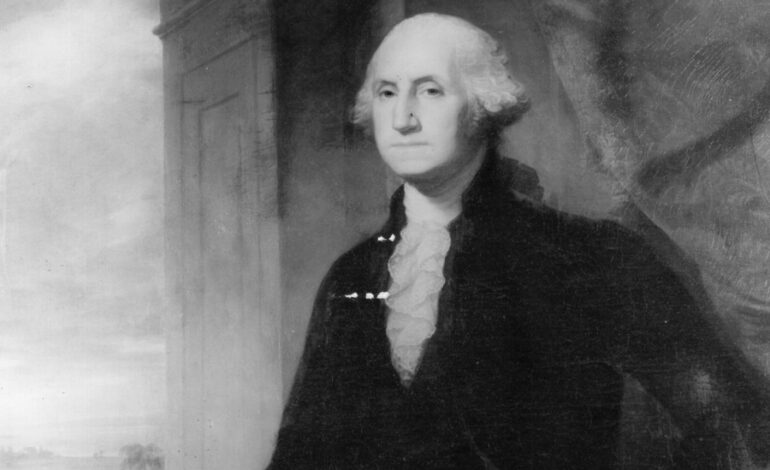Trump Criticized for Excluding Immigrants in Citizenship Debate

The ongoing debate surrounding citizenship in the United States has intensified, particularly following comments made by former President Donald Trump. He has faced backlash for suggesting that the concept of citizenship should be limited to those born in the country, a viewpoint starkly contrasted by the foundational ideals expressed by George Washington.
In a recent statement, Trump emphasized his belief that citizenship should primarily be a birthright. This remark has sparked discussions among political analysts and historians, many of whom reference Washington’s inclusive vision of America. Washington once said, “Citizens by birth or choice… the name of American … belongs to you.” This perspective highlights the importance of welcoming immigrants who choose to make the U.S. their home.
Historical Context of Citizenship in America
The notion of American citizenship has evolved significantly since the nation’s founding. Washington’s inclusive definition underscores a historical precedent that values both native-born and naturalized citizens. Today, approximately 20 million individuals in the U.S. are naturalized citizens, having gone through the legal processes to attain their status. This demographic plays a crucial role in the country’s social and economic fabric.
The current climate surrounding immigration and citizenship has become increasingly polarized. Trump’s statements have been interpreted by some as an effort to reinforce nationalist sentiments, while others see it as a departure from the nation’s foundational values.
Critics argue that such rhetoric undermines the contributions of immigrants who have enriched American society through diverse cultures, skills, and perspectives. Prominent voices in the political arena, including lawmakers and advocacy groups, are advocating for a broader understanding of what it means to be an American in the 21st century.
Impact on Immigration Policy and National Discourse
The implications of Trump’s comments extend beyond rhetoric. They reflect a larger trend in U.S. politics, where immigration policy is often a contentious topic. According to a 2023 Pew Research survey, over 60% of Americans believe that immigration strengthens the country, contrasting sharply with calls for stricter immigration controls.
As the debate continues, the question of how citizenship is defined remains at the forefront of national discourse. Many Americans are calling for policies that recognize the value of all who contribute to the nation, regardless of their origins. This perspective aligns closely with Washington’s vision of a country built on the principles of inclusion and opportunity.
In summary, the discussion surrounding citizenship in the U.S. is not merely a political issue but a reflection of the nation’s identity. As the dialogue evolves, it is essential to consider the words of leaders like George Washington, who emphasized the importance of both birth and choice in defining American identity. The future of citizenship will likely hinge on the balance between these ideals and the current political climate.






